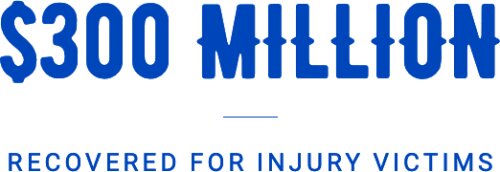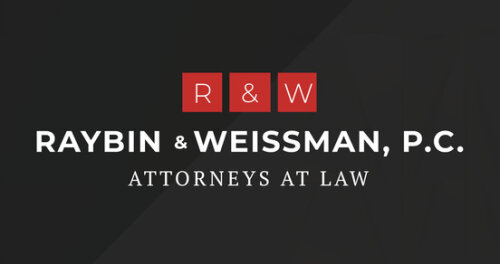Best Motorcycle Accident Lawyers in Nashville
Share your needs with us, get contacted by law firms.
Free. Takes 2 min.
List of the best lawyers in Nashville, United States
About Motorcycle Accident Law in Nashville, United States
Motorcycle accident law in Nashville follows Tennessee state law and local rules that govern liability, insurance, licensing, and roadway conduct. Because Tennessee is an at-fault state, the rider or other driver who caused the crash is generally responsible for paying damages. Motorcycle crashes often produce serious injuries and complex liability questions - so understanding the legal framework, deadlines, and evidence that matter is important when pursuing medical bills, lost wages, and other damages.
Why You May Need a Lawyer
Many motorcycle crash victims benefit from legal help. A lawyer can be important when:
- You suffered serious or catastrophic injuries such as head trauma, spinal cord injury, amputation, or long-term disability.
- Liability is disputed or multiple parties may share fault, including other drivers, vehicle manufacturers, part suppliers, or government entities for road defects.
- You face a hit-and-run, uninsured or underinsured motorist, or the other driver denies responsibility.
- Insurance companies offer low settlements, delay payment, or challenge your medical treatment and damages.
- There are complicated medical liens, workers compensation overlap, or subrogation claims from insurers or medical providers.
- You need help preserving evidence, obtaining police and medical records, securing expert witnesses, or meeting court deadlines.
Local Laws Overview
Key Tennessee and Nashville law points to keep in mind include:
- Insurance Requirements - Tennessee requires minimum liability insurance for motor vehicles. The common minimum limits are twenty-five thousand dollars bodily injury per person, fifty thousand dollars bodily injury per accident, and fifteen thousand dollars property damage. These limits apply to motor vehicles and relate to third-party claims.
- At-Fault System - Tennessee is an at-fault state. The at-fault driver or that driver’s insurer is normally responsible for compensating victims for medical bills, lost wages, pain and suffering, and property damage.
- Comparative Fault - Tennessee applies a modified comparative negligence rule with a fifty-percent bar. If you are found more than fifty percent at fault for the crash, you typically cannot recover damages. If you are partially at fault but fifty percent or less responsible, your recovery is reduced by your percentage of fault.
- Helmet and Equipment Rules - Tennessee requires all motorcycle operators and passengers under twenty-one to wear a protective helmet. Riders twenty-one and older may be exempt from the helmet requirement only if they can show proof of at least ten thousand dollars in medical insurance or motorcycle medical benefits. Helmet usage and other safety gear can influence investigations and damage calculations.
- Licensing and Endorsements - Operators must have the appropriate motorcycle endorsement or license classification. Lack of a valid endorsement can affect insurance coverage and liability determinations.
- Reporting and Duty to Stop - If a crash causes injury, death, or substantial property damage, drivers must stop, render reasonable assistance, and exchange information. Serious crashes will generate a police report that is important evidence in a claim.
- Statute of Limitations - There are legal deadlines for filing lawsuits. For most personal injury claims in Tennessee, the timeframe to file in court is short - often measured in months to a year from the crash date - and exceptions can apply. Missed deadlines can bar a claim, so prompt action is essential.
- Local Court Practice - Serious injury and wrongful death cases in Nashville are typically litigated in Davidson County state courts - such as Circuit or Chancery Court. Local rules and scheduling practices can affect how a case proceeds.
Frequently Asked Questions
What should I do immediately after a motorcycle crash?
Get medical attention first, even if injuries seem minor. Call law enforcement so a crash report is created. Exchange contact and insurance information with other parties and gather witness names. Take photos of the scene, vehicles, injuries, and road conditions. Preserve clothing and damaged gear and keep records of medical visits, bills, and work loss. Notify your insurance company but avoid detailed recorded statements without legal advice.
How do I prove who was at fault?
Fault is proved with evidence such as the police crash report, photos and video, witness statements, traffic camera footage, vehicle damage patterns, medical records, and expert analysis (for example, accident reconstruction, medicine, or mechanics). Prompt evidence collection and preservation is important because scenes change and witnesses become harder to locate over time.
Will not wearing a helmet hurt my claim?
Yes - failing to wear a helmet can be used against you. Tennessee law and courts consider helmet use as part of comparative fault and causation. If your injuries would have been reduced or avoided by helmet use, a defendant or insurer may argue for a reduction in your damages. Discuss helmet issues with an attorney early so they can analyze how this may affect your case.
Who pays my medical bills after the crash?
Initially, your health insurance, motorcycle medical payments coverage if you have it, or personal injury protection are common payors. If the other driver is at fault, their liability insurer should pay for reasonable and necessary medical costs. If the at-fault driver is uninsured or underinsured, your uninsured/underinsured motorist coverage may apply if you carry it. Lawyers often handle medical liens and negotiate balances as part of settlement talks.
What if the at-fault driver does not have insurance?
If the at-fault driver is uninsured, you may make a claim under your own uninsured motorist coverage if you have it. If you do not have UM coverage and the at-fault driver has no assets, recovery options are limited and may require pursuing other responsible parties or seeking compensation through personal assets. A lawyer can evaluate all potential sources of recovery.
How long will it take to resolve my claim?
Timelines vary. Minor claims may settle in a few weeks to a few months. Serious or disputed claims can take many months to several years, especially if litigation and trial are necessary. Immediate needs like medical bills may require interim solutions, such as negotiating medical payment plans or using health insurance while the claim develops.
Do I need to hire a lawyer if the insurance company offers a settlement?
Not always, but it depends. Early insurer offers are often low and intended to close claims quickly. If you have significant injuries, ongoing treatment, permanent impairment, or disputed fault, consulting a lawyer before accepting a settlement is advisable. An attorney can estimate the full value of your case and negotiate for fairer compensation, often on a contingency-fee basis.
Can I still recover if I was partially at fault?
Yes, under Tennessee’s modified comparative fault rule you can typically recover damages if you are fifty percent or less at fault. Your recovery is reduced by your percentage of fault. If you are found more than fifty percent responsible, you generally cannot recover damages.
What damages can I recover after a motorcycle accident?
Recoverable damages can include past and future medical expenses, lost wages and lost earning capacity, pain and suffering, emotional distress, and property damage. In catastrophic cases, damages for long-term care, home modifications, and loss of consortium for family members may also be available.
What if the crash resulted in a death in my family?
If a loved one was killed, immediate family members may have a wrongful death claim against the at-fault party. Wrongful death actions pursue damages such as medical and funeral expenses, loss of financial support, loss of companionship, and in some cases punitive damages. Statutory rules and deadlines apply, so consult a lawyer promptly to protect your rights.
Additional Resources
Helpful local and state resources to consult or contact include:
- Metropolitan Nashville Police Department - Traffic Division for crash reports and investigations.
- Tennessee Department of Safety and Homeland Security for motorcycle licensing and endorsement rules.
- Tennessee Department of Commerce and Insurance for questions about insurance requirements and consumer complaints.
- Davidson County Circuit Court and Chancery Court for procedural information about filing lawsuits locally.
- Tennessee Bar Association and Nashville Bar Association for lawyer referral services and guidance on finding experienced motorcycle accident attorneys.
- Local motorcycle safety and advocacy groups such as regional ABATE chapters for education and community resources.
- Hospital trauma centers and victim assistance programs in Nashville for medical and support services.
Contacting a lawyer for a case evaluation is also a practical resource - many personal injury lawyers offer free initial consultations.
Next Steps
If you need legal assistance after a motorcycle crash in Nashville, consider this step-by-step approach:
1. Get medical care and follow treatment recommendations carefully. Your health and documented records are critical.
2. Preserve evidence - photos, videos, clothing, damaged gear, receipts, and witness names. Obtain a copy of the police crash report.
3. Notify your insurance company about the crash but limit statements until you consult a lawyer. Provide basic facts but avoid long recorded statements about fault.
4. Keep detailed records of medical bills, time missed from work, and all accident-related expenses.
5. Contact an experienced Nashville personal injury or motorcycle accident attorney for a free case evaluation. Ask about contingency fees, case strategy, trial experience, and how the lawyer will communicate with you.
6. Act quickly to meet statutory deadlines and to allow your attorney time to investigate, preserve evidence, and negotiate or litigate if necessary.
7. If you cannot afford an attorney up front, ask about contingency-fee arrangements where the lawyer is paid from a portion of the recovery and does not require upfront fees.
Taking prompt, organized action improves the chances of a fair outcome. An experienced attorney can advise you about options, deadlines, and realistic recovery expectations based on Nashville and Tennessee law.
Lawzana helps you find the best lawyers and law firms in Nashville through a curated and pre-screened list of qualified legal professionals. Our platform offers rankings and detailed profiles of attorneys and law firms, allowing you to compare based on practice areas, including Motorcycle Accident, experience, and client feedback.
Each profile includes a description of the firm's areas of practice, client reviews, team members and partners, year of establishment, spoken languages, office locations, contact information, social media presence, and any published articles or resources. Most firms on our platform speak English and are experienced in both local and international legal matters.
Get a quote from top-rated law firms in Nashville, United States — quickly, securely, and without unnecessary hassle.
Disclaimer:
The information provided on this page is for general informational purposes only and does not constitute legal advice. While we strive to ensure the accuracy and relevance of the content, legal information may change over time, and interpretations of the law can vary. You should always consult with a qualified legal professional for advice specific to your situation.
We disclaim all liability for actions taken or not taken based on the content of this page. If you believe any information is incorrect or outdated, please contact us, and we will review and update it where appropriate.









